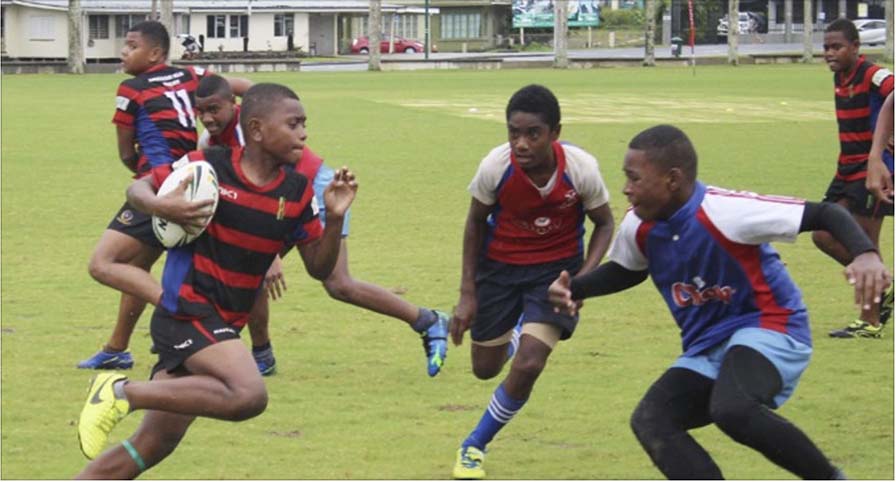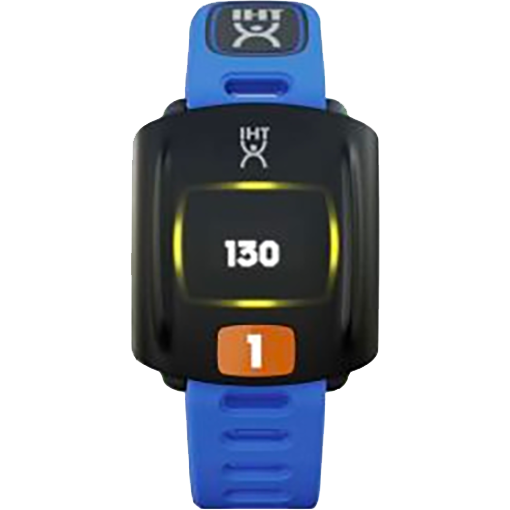Originally published Oct. 31, 2018 in the Fiji Sun.
Physical Education (as a school subject) is a critical component of wellness considering the roles it plays in developing positive behavioral attitudes in children.
With the right education, health and physical activity focus a physical education class can produce wonders for our children. The rise in non-communicable diseases (NCD) in Fiji recently elevated Fiji to the number one position in the world in NCD related deaths.

Keyasi Malorua of Kasavu Primary School from Naitasiri on attack against the Nasinu Warriors during the FNRL Gala competition on October 27, 2018. Photo: Simione Haravanua
Statistically in every three Fijians, one will succumb to this killer disease. World Health Organisation (WHO) through its Health Promoting School (HPS) initiative together with the Ministry of Educations Curriculum Advisory Section (CAS) and the Fiji National Sports Commission conducted two workshops for the central and western education clusters of Health Promoting Schools. The workshops focused on the health, physical education and physical activity components of wellness. Physical education is a critical component considering the roles physical education plays in our education system particularly in developing positive behavioral attitudes in children.
Physical Education is a technical subject, while teachers are not specialists in the field compared to their secondary schools’ counterparts, they can deliver effective lessons if they develop the passion and the skills to teach effective physical education.
The physical education component focused on identifying the health and physical activity components which must become a part of a good physical education class.
Teachers were challenged to teach an attractive session that had an outcome and fun through games. The highlight was on the skills that teachers chose from their syllabi which determined the type of class taken.
Following the two workshops, a follow-up programme was put in place to visit 28 schools in the Health Promoting Schools Programme in the west and central divisions. The follow up was to assess whether what was learned in the workshop were being implemented by teachers in the physical education class deliveries.
The team then visited individual schools and re-presented the ideologies of teaching physical education. Teachers were given time to re-evaluate their lesson plan before they presented or chose to team up with the visiting team to the lesson for maximum learning. The team was able to guide teachers step by step in their teaching. From unpacking of the course learning outcomes (CLO’s) in their syllabi to the creation of their lesson plan.
Teachers were able to highlight the steps of teaching an effective practical PE class from the introductory warm up, the teaching of the skills in sequence, the group practice and correction of the skills and finally the game situation where the skills were reiterated or reinforced in fun game situations.
After the teaching of the class, a session of re-evaluation was done with the staff of the school. In most cases, we had the head teachers sitting in, in their roles as supervisors of the delivery of physical education classes in schools under the Health Promoting Schools Program. This session helped the teachers to re-evaluate their teaching, highlighting their achievement indicators, the positive areas of their teaching and the parts they would like to improve on.
Sports Education Officer Physical Education Curriculum Coordinator Biu Colati said that this partnership approach reinforces the fact the health of our people should be everyone’s concern. Through the contribution of the team, we believe that the objectives of this visit were achieved. The project achieved the following outcomes;
- deliver a physical education class which must contain an education component, a health component, and a physical activity component.
- Assess whether the class achieved its stated outcomes or objectives
- Assess the teacher’s presentation methodology
- Provide feedback for improvement.
Another very important aspect that was achieved was the realization by teachers that they can combat the crisis of NCD in Fiji by teaching physical education properly to bring about change in behavior and creating another generation that loves to do physical activities.
Seeking IHT Spirit System information?




